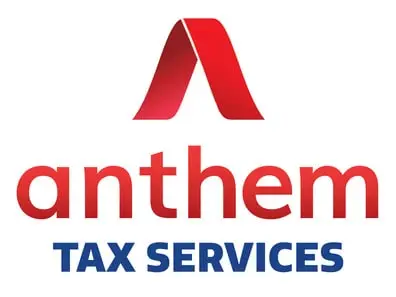
Delinquent taxes are overdue, unpaid taxes. If you miss the deadline for filing or paying your taxes, you could incur penalties and high-interest rates which will increase over time. If you don’t pay your delinquent taxes it could also result in collection actions such as the IRS claiming back taxes against your wages, property, or other assets.
A delinquent tax notice will be sent if the records indicate that a taxpayer hasn’t filed a tax return on time, or has failed to pay outstanding taxes. It will follow a bill that has been sent recently stating your overdue tax debts. There are a number of reasons taxpayers may not file tax returns on time. Often, especially in the case that the taxpayer has no earnings to report, they may simply forget to file a tax return. Alternatively, they could have neglected to file the return altogether. Another possibility is using an old filing frequency in error, in which case the tax return will need to be amended.
What happens if I ignore delinquent a tax notice?
The IRS will take action if you have received a delinquent tax notice and haven’t arranged suitable payment. One possibility is wage garnishment. The IRS will seize part of your wages in order to clear your debt. Wage garnishment can occur without a court order. You will receive a notification if the IRS is going to garnish your wages. First, they will contact your employer who will then issue you with a Statement of Dependents and Filing Status form. This will allow you to claim a certain amount as an exemption if you have dependents. The IRS will then deduct your debt from your wages, which is typically done at 25%.
The IRS can also place a tax lien on your property or other assets. This means they’ve secured a legal claim on your property, which could result in repossession if you don’t pay off your debt in full. This will also negatively affect your credit report and other background checks. If a tax lien is filed against you due to delinquent taxes, you can set an installment agreement with the IRS to clear your debt in monthly payments.
What should I do if I have delinquent taxes?
It’s crucial to deal with your delinquent taxes as soon as possible. This is the only way to reduce penalties and interest being added to your existing balance. If you have received a delinquent tax notice, you can contact the IRS to get advice on payment options. There are several different arrangements you can choose from in order to clear your delinquent taxes.
- File your tax return and pay in full
If you file your tax return and pay your delinquent taxes in full up to eight weeks after receiving your delinquent tax notice, there will be no further action against you.
- Set up an installment agreement with the IRS
If you are unable to clear your debt in full you can set up a monthly payment plan with the IRS.
- Apply for a partial payment plan
In some cases, the IRS may allow a partial payment plan, where you pay off a portion of your delinquent taxes on a monthly basis until the liability expires.
- Offer in Compromise
Offer in Compromise (OIC) is a type of settlement agreement with the IRS. The IRS may agree to this if there has been an error on their part, or you’re experiencing financial hardship, and you need to be up to date with other payments.
What happens if I can’t afford to pay delinquent taxes?
If you are experiencing financial hardship and are unable to pay your delinquent taxes, the IRS may be able to declare you as “currently not collectible”. This means you can delay your payments and a temporary pause will be put on any collections. You will have to demonstrate severe economic disadvantage to qualify. Being declared currently not collectible doesn’t automatically clear your taxes, however, and they’ll still be on your record until you’re in a better position to pay them.
If you have received a delinquent tax notice or a deficiency notice from the IRS, don’t panic. As long as you deal with it as soon as possible, there will be several options available. The sooner you make an arrangement to pay back your delinquent taxes the better. It is never a good idea to approach complex financial decisions without sound advice from people who really understand the choices you’re weighing. That is why we are there, to give you the resources to reach the best possible understanding with the IRS. If you are in process of getting a divorce or have already divorced and in need of tax debt relief, contact us today by phone ((855) 749-2859) or email.
Delinquent taxes are overdue, unpaid taxes. If you miss the deadline for filing or paying your taxes, you could incur penalties and high-interest rates which will increase over time. If you don’t pay your delinquent taxes it could also result in collection actions such as the IRS claiming back taxes against your wages, property, or other assets.
A delinquent tax notice will be sent if the records indicate that a taxpayer hasn’t filed a tax return on time, or has failed to pay outstanding taxes. It will follow a bill that has been sent recently stating your overdue tax debts. There are a number of reasons taxpayers may not file tax returns on time. Often, especially in the case that the taxpayer has no earnings to report, they may simply forget to file a tax return. Alternatively, they could have neglected to file the return altogether. Another possibility is using an old filing frequency in error, in which case the tax return will need to be amended.
What happens if I ignore delinquent a tax notice?
The IRS will take action if you have received a delinquent tax notice and haven’t arranged suitable payment. One possibility is wage garnishment. The IRS will seize part of your wages in order to clear your debt. Wage garnishment can occur without a court order. You will receive a notification if the IRS is going to garnish your wages. First, they will contact your employer who will then issue you with a Statement of Dependents and Filing Status form. This will allow you to claim a certain amount as an exemption if you have dependents. The IRS will then deduct your debt from your wages, which is typically done at 25%.
The IRS can also place a tax lien on your property or other assets. This means they’ve secured a legal claim on your property, which could result in repossession if you don’t pay off your debt in full. This will also negatively affect your credit report and other background checks. If a tax lien is filed against you due to delinquent taxes, you can set an installment agreement with the IRS to clear your debt in monthly payments.
What should I do if I have delinquent taxes?
It’s crucial to deal with your delinquent taxes as soon as possible. This is the only way to reduce penalties and interest being added to your existing balance. If you have received a delinquent tax notice, you can contact the IRS to get advice on payment options. There are several different arrangements you can choose from in order to clear your delinquent taxes.
- File your tax return and pay in full
If you file your tax return and pay your delinquent taxes in full up to eight weeks after receiving your delinquent tax notice, there will be no further action against you.
- Set up an installment agreement with the IRS
If you are unable to clear your debt in full you can set up a monthly payment plan with the IRS.
- Apply for a partial payment plan
In some cases, the IRS may allow a partial payment plan, where you pay off a portion of your delinquent taxes on a monthly basis until the liability expires.
- Offer in Compromise
Offer in Compromise (OIC) is a type of settlement agreement with the IRS. The IRS may agree to this if there has been an error on their part, or you’re experiencing financial hardship, and you need to be up to date with other payments.
What happens if I can’t afford to pay delinquent taxes?
If you are experiencing a financial hardship and are unable to pay your delinquent taxes, the IRS may be able to declare you as “currently not collectible”. This means you can delay your payments and a temporary pause will be put on any collections. You will have to demonstrate severe economic disadvantage to qualify. Being declared currently not collectible doesn’t automatically clear your taxes, however, and they’ll still be on your record until you’re in a better position to pay them.
If you have received a delinquent tax notice or a deficiency notice from the IRS, don’t panic. As long as you deal with it as soon as possible, there will be several options available. The sooner you make an arrangement to pay back your delinquent taxes the better. It is never a good idea to approach complex financial decisions without sound advice from people who really understand the choices you’re weighing. That is why we are there, to give you the resources to reach the best possible understanding with the IRS. If you are in process of getting a divorce or have already divorced and in need of tax debt relief, contact us today by phone ((855) 749-2859) or email.


